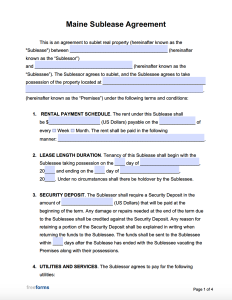Lease Agreements By Type
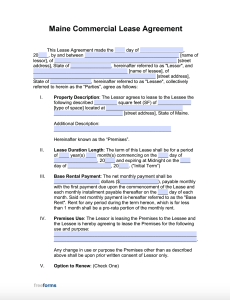 Commercial Lease Agreement: Uses a legal record to corroborate the particulars involved in the leasing of a building for commercial purposes.Download: PDF, Word (.docx) Commercial Lease Agreement: Uses a legal record to corroborate the particulars involved in the leasing of a building for commercial purposes.Download: PDF, Word (.docx) |
|
Download: PDF, Word (.docx) |
|
Download: PDF, Word (.docx) |
|
Download: PDF, Word (.docx) |
|
Download: PDF |
|
Download: PDF, Word (.docx) |
Required Landlord Disclosures?
1.) Radon Testing Status (§ 14-6030-D): Legislation mandates that residential buildings have the air tests every 10 years by a licensed professional.
2.) Energy Efficiency Disclosure Form (§ 14-6030-C): Landlords provide an energy expenditure report, specifically including the past 12 months, upon request.
3.) Smoking Policy on the Premises (§ 14-6030-E): Tenants must receive the policy explicitly dictating the relationship between smoking tobacco and the premises in writing.
4.) Utilities for Common Areas of a Property (§ 14-6024): State law forbids landlords from requiring a single tenant to pay for utility services in common areas unless all tenants pay; however, a single tenant may do so if there is a reduction in their rent.
5.) Lead-Based Paint (42 U.S. Code § 4852d): Pre-1978 structures require a notification of possible exposure to lead-based paint, while the state further requires landlords give 30-day notice for repairs on pre-1979 structures (§ 14-6030-B).
6.) Bed Bug Infestation Disclosure (§ 14-6021-A): Landlords must inform tenants of any active bed bug infestation on the property.
When is Rent Due?
Grace Period: While Maine does not designate grace periods, it requires landlords wait 15 days after nonpayment before assessing fees (14 ME Rev Stat § 6028).
Unpaid Rent: Landlords retain the option to serve tenants a 7-day notice of termination whenever rent is unpaid (14 ME Rev Stat § 6002).
Late Fees
NSF Fee
- Use the courts to gain the check amount
- Collect 12% per annum from the dishonor date
- Recover the bank fees
- Seek attorneys fees
- Potentially receive up to $150 as a civil penalty payment (14 ME Rev Stat § 6071).
Security Deposit Maximum ($)
Security Deposit Return($)
Returning to Tenant: Landlords return the security deposit amount, specifically:
- within 21 days of terminating an at-will lease.
- within 30 days of a fixed-term lease termination (14. ME Rev Stat § 6033).
Itemized List: If landlords retain “any portion” of security deposits, then they account for each deduction in writing (14. ME Rev Stat § 6033).
Landlord’s Right to Enter
Standard Entry: Landlords deliver reasonable notice (generally 24 hours) before entry to obtain tenant consent (14. ME Rev Stat §6025)
Emergency Entry: Landlords may enter in emergency situations, especially when an animal’s welfare is at risk. (14. ME Rev Stat §6025)
Absence
Repair and Deduct
Tenant Breaking a Lease (Early):
Domestic Violence: Victims may terminate the lease prematurely with:
- 7-Day notice for at-will tenancy and leases under one year, while providing appropriate documentation
- 30-day notice for leases that are over one year and must also attach court orders and relevant police reports (14 M.R.S. § 6002).
Active Military: Federal law requires landlords to accept military service members’ lease terminations whenever they must transfer or report for duty (50 USC § 3955).
Landlord’s Noncompliance: If the landlord has significantly violated the lease, tenants can terminate with 7-day notice (14 ME Rev Stat § 6001)
Landlord’s Harassment: Tenants experiencing sexual harassment terminate the agreement with 7 day notice; however, tenants facing harassing entry demands may:
- Seek an injunction
- Collect damages or a $100 (whichever is greater)
- Recover attorney fees necessary should the landlord contest and fail (14. ME Rev Stat § 6001(6)(D), 14 MRS § 6025).
Is an Oral Lease enforceable?
Renewing a Lease
Unclaimed Property
Landlords send tenants a 14-day notice listing all abandoned tenant items in detail before going through disposal (14 M.R.S. § 6013(1)–(5))
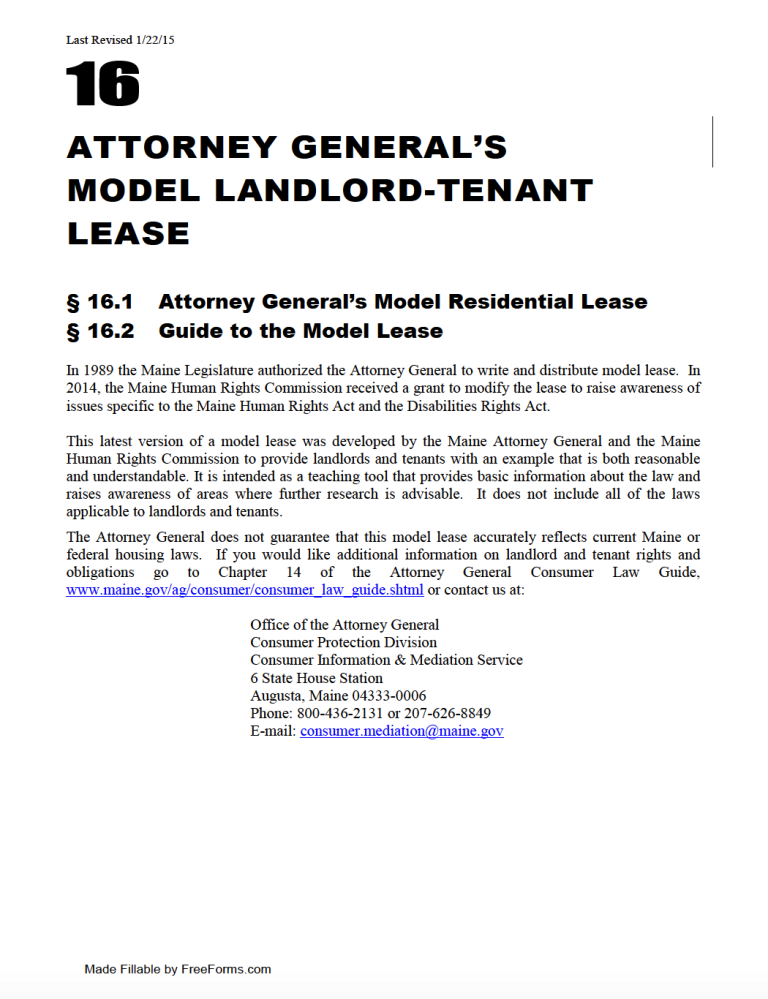
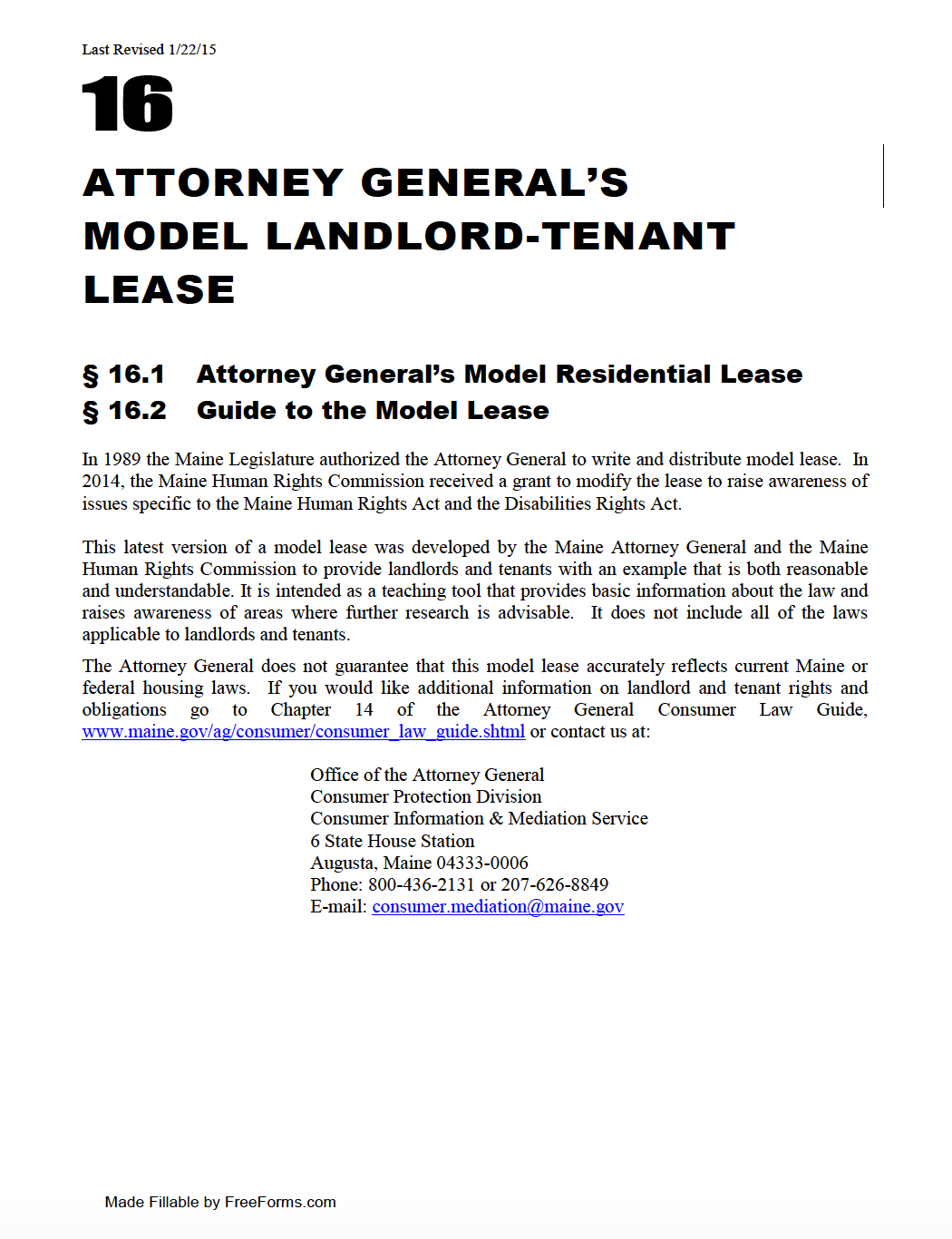
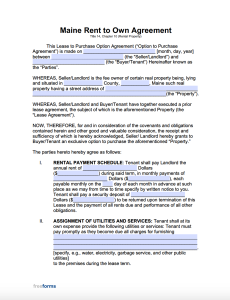
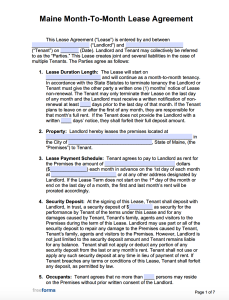
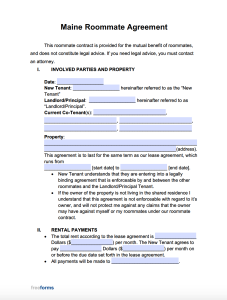
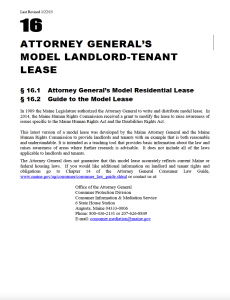 Standard Lease Agreement
Standard Lease Agreement